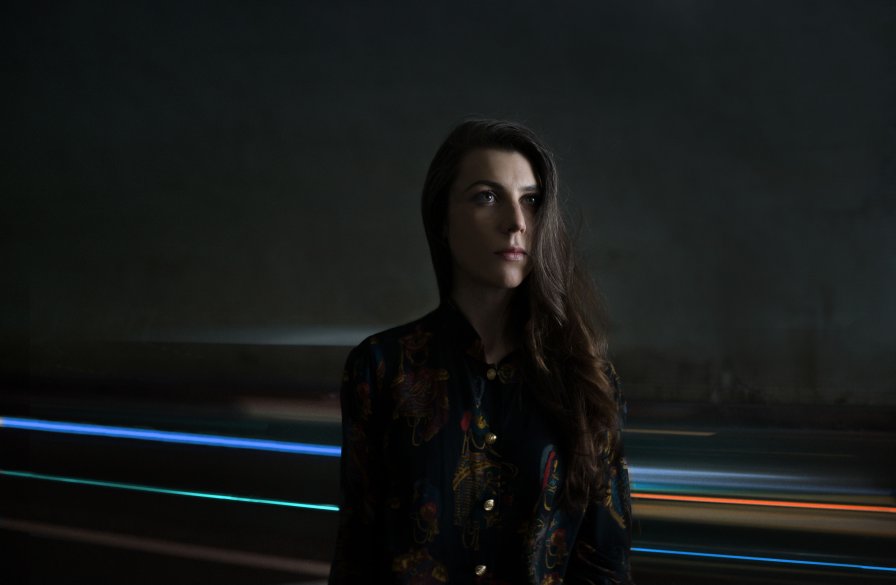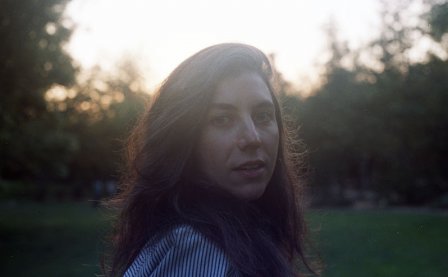There was no part of me that expected Julia Holter’s performance at the Teragram Ballroom last Saturday to be as decimating as it was. I’ve seen Holter once before, less than a year ago, at a free festival up at CalArts (of which Holter is an alumni), and although it was a gorgeous evening, the whole outing was fairly low key. Students poured each other wine on the modestly sized campus quad, perhaps only 30 or so of them in attendance, while Holter tested out material from her not-yet-announced new album, happily waxing on the inspiration for each song. It was like a brief, gleaming garden stroll, with Holter guiding us along with glee and curiosity. But from the moment she emerged onto the stage last Saturday, completely clad in black, striking the molten opening pulses from “Horns Surrounding Me,” it was immediately clear where we were. This was no college picnic, no frilly day trip — in that moment, Holter’s wilderness was upon us.
It helped that Circuit Des Yeux had just set the tone with a hair-raising opening performance, all horribly distorted 12-string and uninhibited vocal psychosis. As Holter carried “Horns Surrounding Me” through a deep, clouded tunnel, it shocked me to witness just how intense a performer she’s capable of being, lilting above her trusty Nord Stage 2 keyboard in a way that suggests possession, but of a purely willing nature. Even as she leeringly introduced the second song of the night, “Silhouette,” prefacing it with “this next song starts with an S…and you know what that means” to a slightly unsure audience, her bewildering nature felt somehow comfortable, a refreshing embrace of the strange.
The territory that Holter’s music exists in can, quite frankly, easily make for a boring live performance if there’s little in the way of dynamics and nowhere good to sit. But throughout the set, Holter held a captivating balance of light and shadow, welcoming us into her carefully arranged universe without throttling us by the throat. It amazes me that an artist like Holter, whose sensibility on the surface level seems to fall in line with that of the modern composer, can write such studious works that still just fucking flow, a high-brow, art-school type whose music still feels made for casual staring at the ceiling. “Betsy On The Roof” was completely epic, slowly wandering from its drunken beginnings to an uncontrollable, withering climax, and settling back again into peaceful unrest. Even the more upbeat numbers like “In the Green Wild,” “Everytime Boots,” and her cover of Dionne Warwick’s “Don’t Make Me Over” carried a likeminded juggle of moods both enchanting and deeply unsettling.
What Holter conveyed to all of us that night, standing quietly in that dark room, was fascinating not because it felt like bracing performance. Rather, Holter presented herself as a natural frontwoman, carefully trotting through off-the-cuff stage banter and presenting us with songs that walk a line between fully embraced beauty, interminable darkness, pure elegance, and unabashed thorniness. As Holter closed out the night with the one-two juxtaposition of new cuts “Vasquez” and “Sea Calls Me Home,” I felt a genuine connection with the multifaceted uncertainty at play in her art, a refusal to commit to any one way of viewing itself, and an acceptance of such as an even greater truth in expression.
More about: Julia Holter



